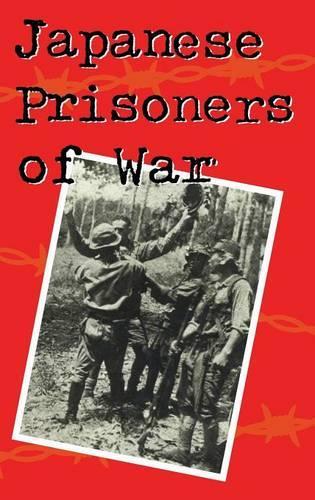
Japanese Prisoners of War
(Hardback)
Publishing Details
Japanese Prisoners of War
By (Author) Philip Towle
Bloomsbury Publishing PLC
Hambledon Continuum
1st June 2006
United Kingdom
Classifications
Tertiary Education
Non Fiction
Second World War
Modern warfare
European history
Cultural studies
940.547252
Physical Properties
Hardback
216
Width 156mm, Height 234mm
300g
Description
During World War II the Japanese were stereotyped in the European imagination as fanatical, cruel, almost inhuman - an image reflected in most books and films about prisoner of war in the Far East. While the Japanese certainly treated those they captured badly, behaving far worse to Chinese and native captives than to Europeans, the conventional view of the Japanese is unhistorical and simplistic. It fails to recognize that the Japanese were acting at a time of supreme national crisis trial, at a particular period of their history, and that their attitudes were influenced by a combination of their perception of their own racial identity mixed with a powerful historical tradition. This collection of essays, by both western and Japanese scholars, aims to see the question from a historical viewpoint, and from both a western and Japanese perspective, looking at it in the light of both longer-term influences, notably the Japanese attempt to establish themselves as an honorary white race. The essays also examine particular instances. Conditions in the almost self-run camp at Changi contrasted remarkably with those on the Burma Railway, where disease and a failure to provide supplies caused terrible suffering. The book also addresses the other side of the question, looking at the treatment of Japanese prisoners in Allied captivity.
Reviews
"Where the Japanese troops are facing hardships ... there is no need to pamper POWs." --General Hideki Tojo
Author Bio
Philip Towle is a former Director of the Centre for International Studies at the University of Cambridge.
